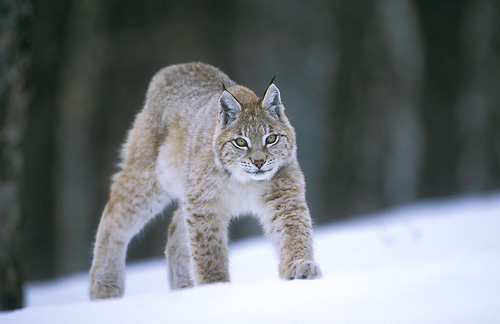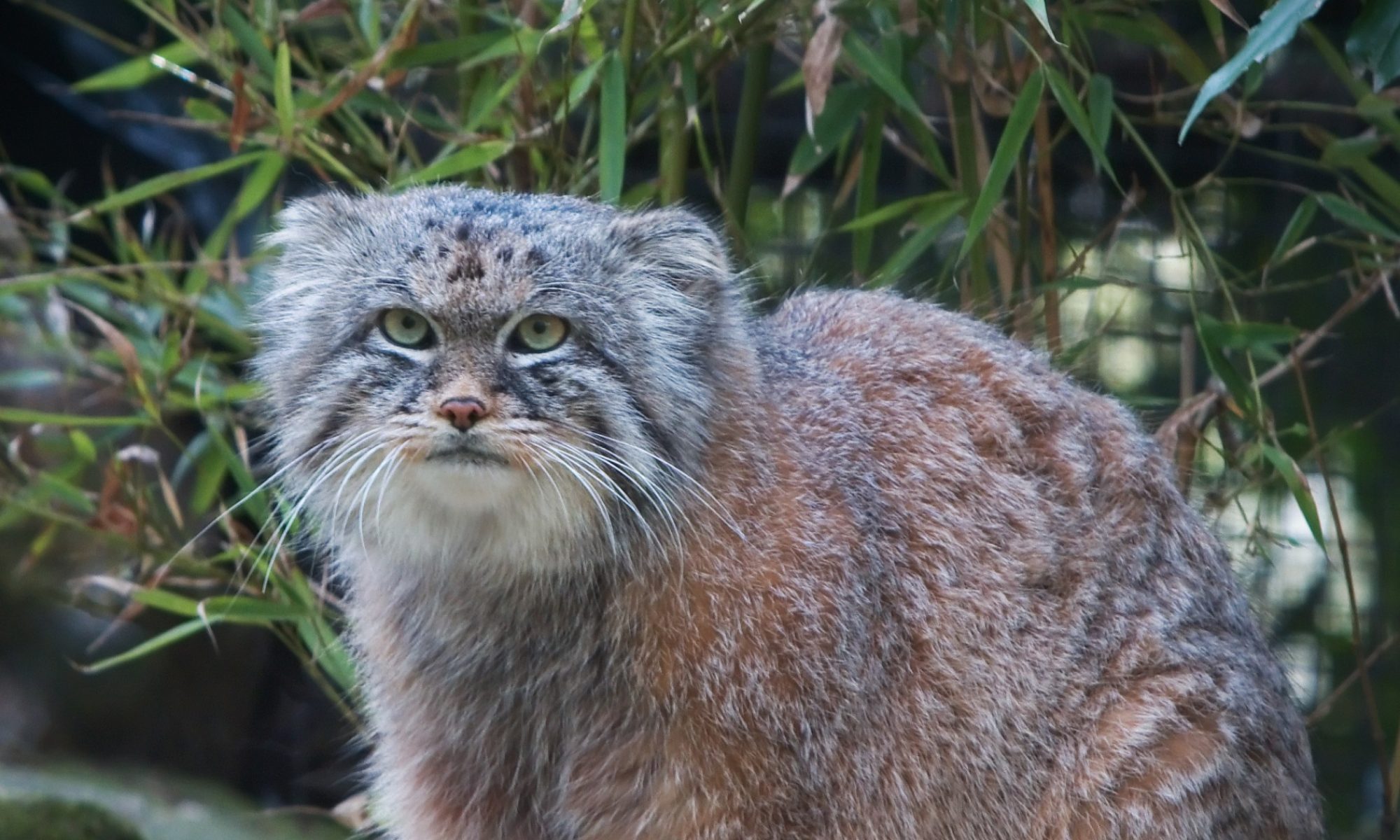Cat of the Month ~ October 2007
The European lynx is cat-like in appearance but is much larger than a domestic cat at just over 1m in length and weighing between 30 – 40Kg. They have a very short tail and ear tufts with a grey-brown spotted coat.

The European Lynx live mainly in pine forests and mountain areas of northern Europe. They are solitary animals and have a large home territory which the mark and defend from other Lynx in the area. Their main prey are roe deer, hares and rabbits. Sometimes they will eat sheep. An adult lynx eats on average 1-2 kg of meat a day.
Unfortunately there are no longer any Lynx in Britain (other than in Zoos). They lived here about 1,000 years ago but became extinct probably due to hunting and loss of habitat.
Lynx mating takes place between February to April with usually 2 -3 young born 10 weeks later. The mother cares for and feeds her kittens on her own with no help from the father. Young lynx live with their mother until about ten months old and then move away. Most adults live for around 4 – 5 years but survivors can reach 17 years of age.
Some more facts about European Lynx:
- There are several Scientific names for the Lynx. They are ‘Lynx Lynx’ (Siderian), Lynx Pardinus’ (Iberian), Lynx Canadensis (Canadian) or Lynx Rufus.
- Lynx are rare animals with only small numbers present in just a few countries of Europe.
- Some people are allowed to hunt lynx in Europe for their fur and skins.
- Lynx have been reintroduced to some European countries to help them increase their numbers.
- Some people want to return lynx to the wild in Britain.
- It is thought that Scotland has enough wild places for about 350 lynx. However farmers may well be against this happening because lynx sometimes kill sheep.
Link to one of many Lynx websites

